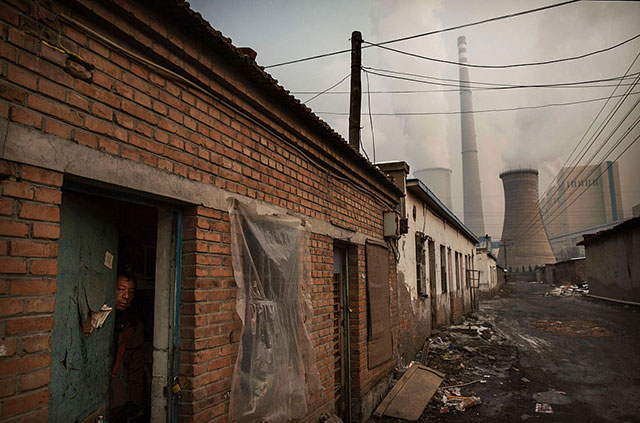
It’s hard to predict how President Trump’s new Surgeon General, Dr. Jerome Adams, will define the position. When it comes to key public health issues, Adams — who was confirmed Thursday by the US Senate Committee on Health, Education, Labor and Pensions — has a record of views that don’t align with those of President Trump.
For example, as health commissioner in Indiana, Adams stood up for needle exchange programs and the expansion of Medicaid through the Affordable Care Act. On the global scene, Adams tried to correct myths around the 2015 Ebola outbreak, in response to tweets by Trump accusing the Centers for Disease Control of covering up information.
Clearly, Adams has stood on the side of science to inform public health policy. During his confirmation hearing, Adams reaffirmed this position. However, he also told the Senate committee that he would listen to “what stakeholders and patients are saying.”
As he takes on the role of the most prominent physician in the US, I as a global health professional can only hope that he stands on the side of addressing the national and global health consequences of climate change.
There is no shortage of outrage about the implications of President Trump’s decision to walk away from the Paris Climate Accord. During his trip to Europe for the G-20 meeting, he dashed any hopes for compromise on the issue. However, while much of the reaction has been political, interpreting the move as the US abdicating its world leadership role, the global health consequences of the move are most alarming.
Studies show a clear link between climate change and negative health outcomes. For example, estimates indicate that by 2030, close to 90 million more people in Africa alone could be exposed to malaria because of climate change; the incidence of dengue has been doubling in some parts due to climate-change-related expansion in the range of the dengue-causing mosquito. Estimates predict that up to 60 percent of the global population will be exposed to the disease by the year 2070.
Another ongoing debate argues that the largest indirect effect of climate change on health is social change that includes conflict and migration. Though conflict includes a wide range of factors, there is a growing recognition of the climate change-conflict nexus associated with food insecurity. Aspects of food insecurity, such as access and utilization, are intricately linked to climate change. In return, acute food insecurity can increase social grievances, driving engagement in rebellion, conflict and migration.
For example, in 2012, six of the nine countries in Africa’s Sahel region were involved in conflicts with food insecurity implicated as either a cause or a consequence in several cases. Equally disturbing is the fact that in the absence of sufficient climate change adaptation, by 2050, the number of undernourished children under the age of five will increase by 20 to 25 million.
This ongoing climate change-conflict nexus will place the humanitarian community, already dealing with the world’s largest humanitarian crisis since 1945, under huge strain. More than 20 million people across four countries simultaneously are at risk of starvation, with prolonged drought contributing significantly to the disastrous conditions. Scientists generally agree that the “likelihood that droughts this severe would be occurring simultaneously in the absence of climate change is vanishingly small.”
Another million people in Ethiopia and 2.2 million in Kenya are facing severe hunger due to the increased frequency and intensity of droughts as a corollary of climate change, especially in semi-arid areas.
Ironically, 48 of the least developed countries in the world are the most vulnerable to the effects of climate change, and yet they have contributed to it the least. The most developed countries worldwide are responsible for two-thirds of carbon emissions dating back to 1850 using historical emissions estimates.
However, with the words: “It is time to put Youngstown, Ohio; Detroit, Michigan; and Pittsburgh, Pennsylvania, along with many, many other locations within our great country before Paris, France — it is time to make America great again,” President Trump not only left the world’s first comprehensive climate agreement but also jeopardized so many global citizens.
The world stands at a perilous crossroad, where a healthy environment and the health of all hinges on a socio-political environment threatening to reverse the health gains made so far. President Trump’s decision to leave an aspirational yet voluntary agreement that unites the world is just playing to his US base of voters. We desperately need Congress to stand up against climate change and remember the generations who will benefit. And perhaps Dr. Adams, from the so-called “heartland” that Trump says he values, will teach the president that addressing issues that Trump dismisses as “globalist intrusions” will benefit people in the US, as well.
Join us in defending the truth before it’s too late
The future of independent journalism is uncertain, and the consequences of losing it are too grave to ignore. To ensure Truthout remains safe, strong, and free, we need to raise $46,000 in the next 7 days. Every dollar raised goes directly toward the costs of producing news you can trust.
Please give what you can — because by supporting us with a tax-deductible donation, you’re not just preserving a source of news, you’re helping to safeguard what’s left of our democracy.